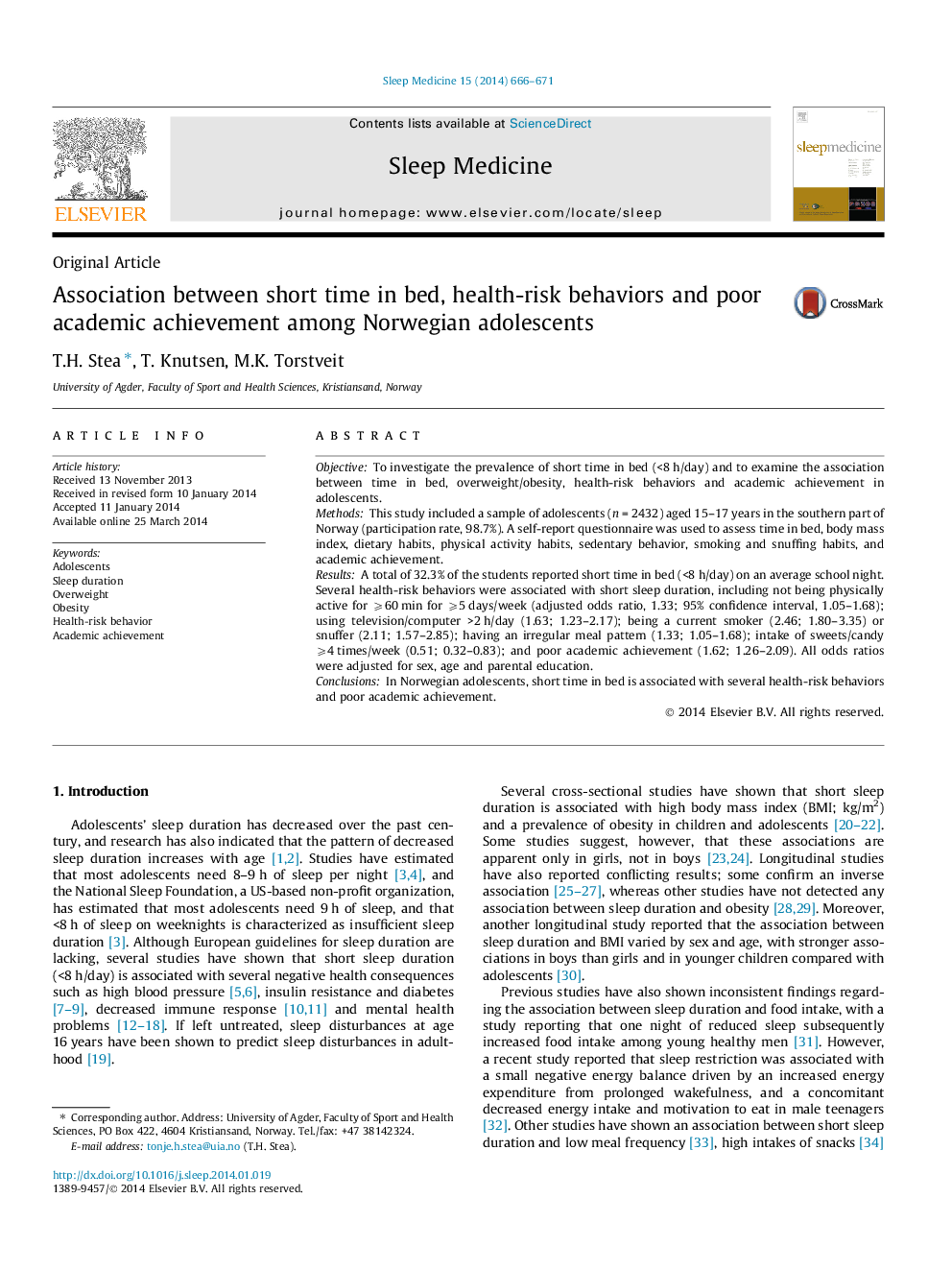| Article ID | Journal | Published Year | Pages | File Type |
|---|---|---|---|---|
| 3176121 | Sleep Medicine | 2014 | 6 Pages |
•A relatively high number of adolescents (32.3%) reported short sleep duration.•Short sleep duration was associated with several health risk behaviors.•Short sleep duration was associated with poor academic achievement.•Future health promoting programs should include focus on increased sleep duration.
ObjectiveTo investigate the prevalence of short time in bed (<8 h/day) and to examine the association between time in bed, overweight/obesity, health-risk behaviors and academic achievement in adolescents.MethodsThis study included a sample of adolescents (n = 2432) aged 15–17 years in the southern part of Norway (participation rate, 98.7%). A self-report questionnaire was used to assess time in bed, body mass index, dietary habits, physical activity habits, sedentary behavior, smoking and snuffing habits, and academic achievement.ResultsA total of 32.3% of the students reported short time in bed (<8 h/day) on an average school night. Several health-risk behaviors were associated with short sleep duration, including not being physically active for ⩾60 min for ⩾5 days/week (adjusted odds ratio, 1.33; 95% confidence interval, 1.05–1.68); using television/computer >2 h/day (1.63; 1.23–2.17); being a current smoker (2.46; 1.80–3.35) or snuffer (2.11; 1.57–2.85); having an irregular meal pattern (1.33; 1.05–1.68); intake of sweets/candy ⩾4 times/week (0.51; 0.32–0.83); and poor academic achievement (1.62; 1.26–2.09). All odds ratios were adjusted for sex, age and parental education.ConclusionsIn Norwegian adolescents, short time in bed is associated with several health-risk behaviors and poor academic achievement.
